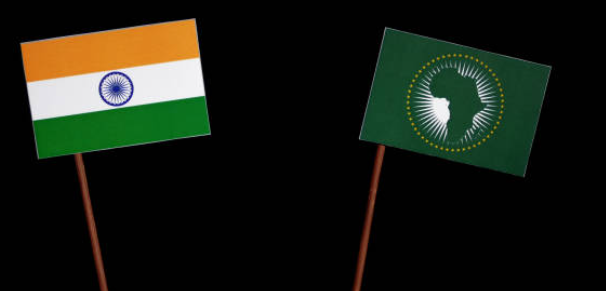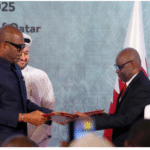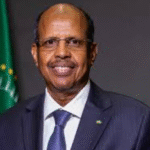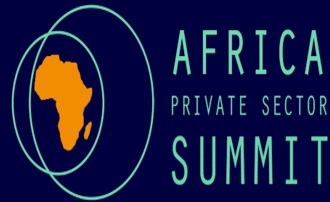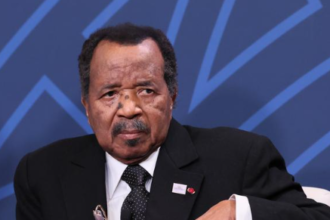By Simba Munyua
NAIROBI, KENYA – A quiet but profound shift is underway across Africa, as the continent increasingly looks inward for its economic destiny – a strategy dubbed the “Africa pivot to Africa.” This burgeoning philosophy of self-reliance and intra-continental growth is finding a powerful ally in Indian investors and businesses, who are deepening their commitment to Africa’s development through substantial investments in trade, commerce, and critically, manufacturing.
For decades, Africa’s economic narrative was often dominated by foreign aid or resource extraction. The “Africa pivot to Africa” movement signifies a deliberate strategic move towards fostering homegrown solutions, adding value to raw materials, promoting intra-continental trade, and building robust, diversified economies from within. This vision is now being significantly bolstered by a new wave of Indian engagement, moving beyond traditional trade to genuine partnerships in productive sectors.
“The emphasis is no longer just on selling goods to Africa, but on producing in Africa, for African markets and beyond,” explains Rohan Sharma, Managing Director of Indus Global Ventures, an Indian firm with growing investments in East Africa’s textile and pharmaceutical sectors. “We see immense potential in supporting Africa’s journey towards industrialization and self-sufficiency. It’s a win-win: sustainable growth for African nations and new market frontiers for Indian enterprises.”
Manufacturing stands out as a cornerstone of this evolved partnership. Indian companies are establishing factories for a wide array of goods, from pharmaceuticals and automotive components to processed foods, consumer electronics, and construction materials across various African nations, including Kenya, Ethiopia, Uganda, Nigeria, Liberia, Sierra Leone, and South Africa. This onshoring of production is crucial for several reasons: it reduces reliance on imports, creates vital local employment, facilitates skills transfer, and builds resilient supply chains within the continent.
Beyond manufacturing, Indian capital and expertise are flowing into critical areas that underpin a thriving economy. Investments in logistics, digital infrastructure, e-commerce platforms, and financial services are streamlining regional trade, improving market access for small and medium-sized African businesses, and fostering a more integrated continental market. This directly supports the African Continental Free Trade Area (AfCFTA) ambitions, which aim to create the world’s largest free trade zone.
Dr. Amina Diallo, a leading economic analyst specializing in African development, highlights the strategic alignment. “What’s compelling about the current Indian engagement is its alignment with Africa’s own developmental agenda. It’s less about external dictate and more about collaborative enterprise. This shift from aid dependency to mutual economic growth, driven by trade and production, is exactly what Africa needs to unlock its full potential and integrate more equitably into the global economy.”
The mutual benefits are clear. For Africa, Indian investments bring much-needed capital, technology, and management expertise, diversifying economies and creating sustainable jobs. For India, Africa offers a vast, young, and rapidly urbanizing consumer market, rich natural resources, and an increasingly favorable business environment, diversifying its own global economic footprint.
While challenges such as infrastructure gaps, regulatory complexities, and skill development needs persist, the growing commitment from Indian investors and the proactive ‘Africa pivot to Africa’ policies of African governments signal a determined path forward. This evolving South-South cooperation is poised to redefine the continent’s economic landscape, fostering a future where Africa’s growth is driven by its own people and its own industries, powerfully supported by strategic partnerships.
Several Indian businesspeople are grounded across Africa and engaged in many sectors. The richest Indian individual in Uganda is Sudhir Ruparedia, a Ugandan business magnate and investor. He is the chairman and majority shareholder in the Ruparelia Group, with investments spanning banking, insurance, education, broadcasting, real estate, floriculture, and hospitality. In 2019, his net worth was estimated at approximately US$1.2 billion.
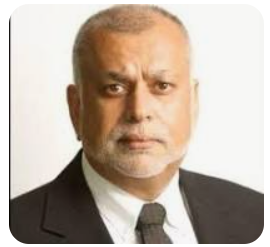
In a recent development, the India-West Africa Business Coalition, an association committed to promoting trade, investment, and manufacturing aims to supercharge trade and manufacturing in the Mano River Union Sub Region of West Africa.
IWABC has announced a strategic commitment to significantly boost trade, commerce, and manufacturing in West Africa, with a particular focus on the Mano River Union subregion comprising Liberia, Guinea, Sierra Leone, and Ivory Coast. The coalition plans to achieve this by leveraging its extensive connections within various Indian chambers of commerce and the broader business and investment communities.
West Africa, known for its rich natural resources and burgeoning consumer base, presents a ripe opportunity for foreign direct investment. The IWABC’s initiative aims to bridge the gap between Indian capital and West African potential, fostering a symbiotic relationship that benefits both economies.
An official statement from the IWABC emphasizes the strategic importance of this collaboration. “We believe that by facilitating direct connections and understanding between Indian investors and West African opportunities, we can unlock immense potential,” stated Mr. Rohan Sharma, Director of Bilateral Relations at IWABC. “Our goal is not just to increase imports and exports, but to actively drive manufacturing capabilities within these nations, creating jobs, transferring technology, and fostering sustainable economic growth.”

The coalition’s strategy involves organizing B2B forums, investment summits, and facilitating direct interactions between Indian enterprises seeking new markets and West African businesses looking for partnerships and capital. Beyond mere trade, the emphasis on manufacturing indicates a long-term vision for sustainable economic development, aiming to boost local industrial capacity within the Mano River Union nations.
The selection of the Mano River Union countries – Liberia, Guinea, Sierra Leone, and Ivory Coast – underscores their collective economic potential and strategic geographical location. These nations, emerging from various stages of development, offer diverse sectors ripe for investment, including agriculture, mining, infrastructure development, energy, and value-added processing.
This proactive stance by the IWABC signals a significant step towards strengthening South-South cooperation. If successful, the initiative could transform the economic landscape of the targeted West African nations, fostering robust bilateral ties and creating a new paradigm for India-Africa economic engagement.
About the India-West Africa Business Coalition (IWABC): The India-West Africa Business Coalition (IWABC) is dedicated to fostering stronger economic ties between India and West African nations. Committed to promoting trade, investment, and manufacturing, the IWABC leverages its extensive network within Indian business and investment circles to connect them with opportunities across the West African region.


